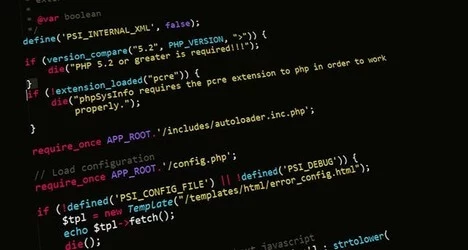Q&A: AI in the Future of HR with Wagner Denuzzo
Add bookmark
AI is inescapable in HR technology circles right now. It’s growing fast with implementations and use cases proliferating quicker than industry analysts can write about it.
In our most recent report, we unpacked the keys to successful AI implementations and what HR leaders need to think about. As part of that, we sat down for an extensive discussion with Wagner Denuzzo, Head of Capabilities for Future of Work at Prudential to ask him some questions. Some of his answers are featured in that report and some, we wanted to share with you here. Enjoy the Q&A and be sure to download the report for more insights from Wagner and other HR technology experts!
DOWNLOAD: The 5 Keys to Implementing AI into HR Intelligently
HREN: 2021 was said to be a year in which HR would become more automated, data centric and AI driven. Do you think that has held true and in your eyes, what are some the most important areas we see AI playing a role for HR today?
Wagner Denuzzo: We’ve definitely made progress in creating the conditions for digital dexterity to become a core competency for all employees in 2020, irrespective of their industries. HR was able to socialize digitalization of platforms and new channels of engagement that accelerated our journey into the future, but I would not say that HR crossed the finish line as predicted.
One, as leaders of a workforce in crisis, we shifted our focus to our employees’ well-being and the enablement of the virtual workplace. Two, we iterated our plans and quickly re-prioritized our technology roadmaps in service of “reimagining the workplace”, so we could be prepared for the new hybrid work that’s emerging in the post-pandemic context. Third, because AI is already being used in most of the more advanced companies that have chosen to implement a Talent Marketplace prior to 2020.
So I would say 2021 is the year of reimagining the workplace and iterating on hybrid work arrangements so we can leap into a future where technology and digital dexterity becomes an expected core competency across all levels of the organization. We are making strides in automating and using data and analytics for better decision making, but the road to AI driven HR just got a bit longer due to the pandemic.
HREN: What do HR departments need to do in terms of their own skillsets to make the most of AI?
WD: I believe we need to become smarter about self-service and automation of core reporting needs of our businesses. We must move from a reactive mindset to a responsive mindset, and learn to sense and anticipate the needs of our business leaders as we observe workforce dynamics’ impact on performance and quality of outcomes.
HR professionals must be adept in identifying data sets that can help us derive insights based on our hypotheses. It is normal to feel overwhelmed with the amount of data that’s available, but we must breathe and discern between “easy to get” and “essential to have.”
I would also say that we must be better storytellers using data and insights. AI does a great job helping us infer skills, propensity to learn, retention risks, and so many other important challenges we have in the organization, but AI at its most valuable, will start predicting the best next action for our desired outcomes and that’s when things get complex, not because we don’t have the technology available, but because humans are still feeding machine learning and designing AI systems with algorithms that are unintentionally wrapped in biases that are sometimes imperceptible to the untrained eye.
HREN: What are some of the biggest challenges in your opinion when it comes to implementing AI solutions for HR?
WD: You need to really build the technology systems integration of your HRIS, LMS (which nowadays is being replace with LXPs), talent acquisition platforms, performance management, data visualization tools, etc. It is helpful sometimes to build a data lake to ensure the integrity of the data sets being used for AI.
Most often, we choose to go with vendors who already have the experience of this integrated approach to AI implementation and that is why talent marketplaces are growing exponentially. Vendors bring the algorithms ready to use and data sets to match candidates to opportunities based on skills inference. But in my view that’s only one piece of the system. We must think about how to advance insights and have the HR community feel confident in their ability to derive insights from data, use visualization to tell stories about the talent dynamics in their companies and only then, we can bring everyone into the world of predictive capabilities and share the experience of experimentation and failures without losing our sense of self-efficacy. We must experiment and fail to get to better capabilities, but that’s hard to do.
HREN: As we look 2-3 years down the road, how much do you think the use of AI in HR will have impacted the way HR professionals work and what sort of things do you think we’ll be using it for that maybe right now aren’t much of a priority?
WD: In the next few years we will see the proliferation of platforms designed for the composable workforce marketplace. Today, we are very cautious using AI for internal mobility only and testing gigs within our organizational virtual walls.
In the next few years, we will see an incredible push for the open talent marketplace. Thought leaders in the area of workforce transformation are already into designing the communities in which expertise, skills and experiences are feeding AI systems to build this amazing pool of talent. We will be going deeper into this skills scarcity situation we have today and only companies that are willing to take risks will win in the markets in which they compete.
We must build the muscle to develop strategic workforce planning that incorporates a workforce mix that’s driven by skill needs and no longer rely on hierarchical organizational charts. AI will have to be more sophisticated to assess the right skills, at the right time, with the right capabilities that only can be built with a view that goes beyond skills. AI will have to assess the individual to place them and match them to the most potentially successful role, with the right duration and cost. It is getting exciting to think about AI in HR as we build the Future of Work.
Photo Courtesy of Stock Photo Secrets




















